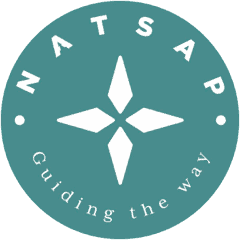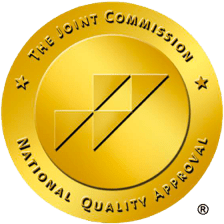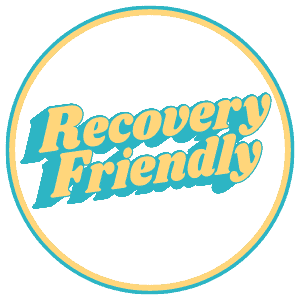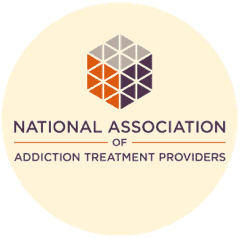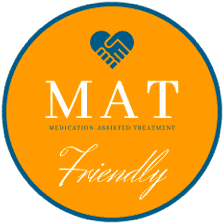The Right To Recover From Addiction
At Next Step Recovery, we know it is critical to restoring a sense of dignity and self-worth for those in early recovery. This sense of worthiness is often the first casualty of active addiction. Our addiction recovery program focuses on building structure, community, and life skills to help clients reconnect with their inherent dignity and worth. We also strongly advocate for our clients basic human rights.
We believe we all have a right to recover free from stigma and discrimination with access to a variety of pathways to healing including transitional living programs like ours.
Every 4 minutes someone in the U.S. dies from an overdose or substance abuse-related cause—the equivalent of a jumbo jet crashing every day with no survivors! Twenty-two million Americans are struggling with active addiction; another 23 million are in recovery. One in 3 families is directly affected.
Addiction is a national epidemic. Make no mistake, the right to recover from addiction is a human right.
Protecting Our Human Rights
We invite you to join us in recognizing and honoring some of the basic human rights of those in recovery:
- We have the right to be recognized as individuals grappling with a real and complicated disease. Recovery from this disease occurs through a variety of pathways including clinical treatment, recovery programs, peer support groups, and spiritual practices. NSR of Asheville’s transitional living program incorporates many of these pathways to maximize opportunities for healing.
- We have the right to be viewed as individuals with unique strengths who are capable of change and growth. We are not hopeless addicts. We are courageous individuals who are learning to face life’s challenges without chemical crutches or other forms of escape. All human beings work through a recovery process at some point in their lives. Whether we’re recovering from substances, illness, loss or emotional challenges, we are all capable of healing.
- We have the right to be free from stigma and discrimination as we pursue our recovery. This includes our federally protected housing, employment opportunities, and other aspects of community life all of which support recovery. We also have the federally protected right to disclose our health information, or not, as we choose and with whom we choose.
- We have the right to hope that recovery is not only possible, but probable with adequate support. Hope is the catalyst for recovery. People can and do overcome the internal and external challenges, barriers, and obstacles that confront them. More than 23 million individuals in substance abuse recovery are living proof that we are resilient and capable of change.
- We have the right to education about the disease of addiction, relapse prevention, and healthy coping strategies. As with any other disease or health challenge, self-direction and active participation in the recovery process is critical for ensuring optimal health. NSR of Asheville’s strong educational focus helps clients make informed choices that support their ongoing recovery.
- We have the right to pursue a nonlinear recovery journey. Recovery is a process that involves physical and emotional healing, learning new skills, and trial and error. Relapse is not the same as failure. It is a common part of the recovery journey that provides its own opportunities for growth and change. Over time, with consistent effort and support, long-term sobriety is possible. We have a right to recovery support and compassion even if we’ve relapsed.
- We have a right to support for the trauma that is often associated with addiction. The experience of trauma (such as childhood abuse, sexual or domestic violence, neglect, or a family history of substance abuse) is often a precursor to substance abuse and mental health challenges. Those in recovery have a right to trauma-sensitive support to create the safety and trust necessary for healing to occur.
- We have a right to support for the mental health challenges that often co-occur with substance abuse. While one does not necessarily cause the other,mental health challenges and addiction
- often go hand in hand. Recovery is greatly enhanced when all aspects of an individual’s health are addressed—physical, emotional, behavioral, social, and spiritual. We have a right to holistic care.
- We have the right to rejoin our communities and participate in meaningful work and interactions. In taking responsibility for our actions and our health, we have a right to participate in meaningful employment, community service, and personal relationships that are based on mutual respect and not defined or limited by a past experience of addiction.
- We have a right to direct our recovery and define our lives. Self-determination and self-direction are the foundations of recovery. We find empowerment in our recovery by taking personal responsibility for our actions, making informed choices about our care, and by setting personally meaningful life goals and then developing a plan of action to achieve them.
Get Help Now
Fill Out The Form Below
or Call (828) 761-0722.
"*" indicates required fields

Medically Reviewed By Susan Stader MS, LCMH, LCAS, CCS
Susan Stader is the founder and director of Next Step Recovery and NSR of Asheville, an Intensive Outpatient Program and a Long-term Extended Care program in Asheville, NC. She received her Master’s in Community Counseling in 2004 at Western Carolina University and went on to get her licensure in addictions and mental health counseling. Susan believes that treatment should be gender-specific and offered in a small setting. Small recovery communities, such as hers, are more intimate and effective in overall client satisfaction and care.
Reach Out Today
Recovery is a lifelong journey, but you don’t need to take it alone. At Next Step Recovery, we give you the tools and support you need to get through early sobriety and find lasting healing. It is our goal to empower our patients to be their best selves and live the life they deserve.
If you have any questions about our programs, methods, insurance, or anything else, reach out to us today. We look forward to helping you to get started along the road to recovery!
Get in Touch Now
Take the Next Step Toward Recovery
"*" indicates required fields


